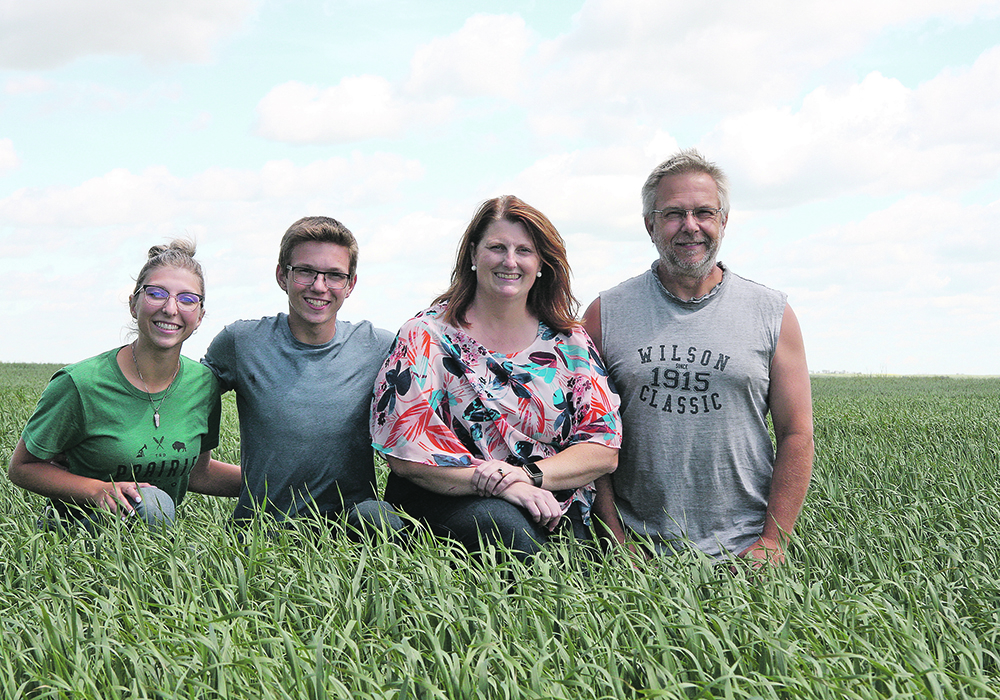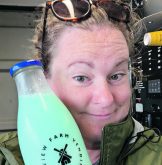ABERNETHY, Sask. — Harvesting wheat always presented a problem for Scott and Teri Ruecker.
Their two children, Paige, now 18, and Luke, 15, would get sick each fall.
And Luke wasn’t growing like a six-year-old should.
They sought out medical advice but no one was able to pinpoint the problem. Finally, with no pediatric gastroenterologist available to see him at the time in Regina, the Rueckers spent the money and went to the Mayo Clinic in Minnesota.
“Within two weeks we were there and within two days we had answers,” Teri said. “It was well worth it.”
Read Also

Nutritious pork packed with vitamins, essential minerals
Recipes for pork
The diagnosis: celiac disease.
And with that the problems at wheat harvest made sense. Luke was diagnosed in 2013 and Paige, who it turns out is even more sensitive to gluten than her brother, in 2016.
With the change to a gluten-free diet Luke gained eight pounds in a single month.
“I just gained all my weight back from three years ago,” Paige said during a July interview.
Now Ruecker Farms is going gluten-free and working with Avena Foods to produce oats under the company’s Purity Protocol. That sets out how oats can be grown safely and cleanly so that those with celiac disease can eat them.
The family lives where Teri’s parents, Ron and Betty McKinnon, were pedigreed seed growers. They were instrumental in bringing pulse crops to Saskatchewan, helped establish Saskatchewan Pulse Growers and were among the first to have colour sorters.
“Our yard in winter was full of lentils waiting to be shipped overseas,” Teri recalled.
She attended the University of Saskatchewan and became a pharmacist, but has always been involved with the farm. She still works casually at a pharmacy in nearby Balcarres.
Scott also attended U of S to study geology but said he always knew he was going to be a farmer.
His family farmed about 25 kilometres away at Lemberg, producing grain and cattle. Scott and Teri took over that farm and that’s where most of the fields are being transitioned to pure oats.
Overall, the farms comprise 3,400 acres of canola, wheat, oats, peas and lentils.
While oats are naturally gluten-free, the way the crop is produced, stored and shipped often results in contamination from wheat, barley and rye, which are the gluten-containing crops that people with celiac disease can’t digest.

Teri said when they found the Only Oats brand from Avena they knew they wanted to move away from wheat production.
“It’s a safe product for fellow celiacs and knowing that, if Luke chooses to take the farm on, it will be healthy for him,” she explained.
The 2019 crop was the first to see pure oats production. The transition involves growing seed from Avena on land that hasn’t had wheat, barley or rye on it for at least the two previous crops. Three is even better, Teri said.
They began with 300 acres.
They didn’t have much problem in terms of handling the crop, coming from a seed grower background. They have always grown oats so it was just a matter of being more diligent.
“We knew how to fully clean all the equipment and every piece gets cleaned to the nth,” Teri said.
Scott added, “We don’t spray glyphosate at harvest anyway, we swath, and that’s what they want.”
Segregated bins are required and they were also cleaned before the oats went in.
The family had three combines and two seed drills so one of each is now dedicated to oats.
“Since the kids were diagnosed, it’s just been an ongoing thing to improve their health,” said Scott. “We were already particular about what we do so it’s not a big deal for us.”
Ironically, Scott is allergic to oats so he has to be careful how he handles it and washes his hands after touching it.
Pleased with the varieties from Avena and the resulting yields, they planted 600 acres this year.
Teri said there is a premium available through Avena contracts that helps compensate for the extra work and record keeping.
Fields are inspected through the growing season to check for rogue gluten-containing crops.
Crops that don’t meet the specs can still be sold in the conventional market.
Although Luke is still young, he said he is interested in taking over the farm and is also interested in adding more cattle to the mix. Scott’s dad had a small herd of beef cattle, as well as milking cows, and there are about two dozen head on the farm now.
Luke works from time to time for a neighbour with several hundred head, which is giving him good experience and will help him make up his mind.
Paige is off this fall to Lakeland College to begin a two-year course in veterinary technology. She is also interested in training celiac-sniffing service dogs. Her sensitivity is so strong that even wearing make-up or nail polish containing gluten can cause her problems, she said, and they have had to make sure her special diet can be accommodated on campus.
She said she doubts she will go far from home once her education is complete as she would like to help her brother.
Teri has recently taken on a new venture with a company called Measur, which is looking at drone use in agriculture. She said she hopes drones will one day be used to pick out crops that contain gluten in fields that are supposed to be clean.
Scott said it will be a big deal for him and Teri’s father when the farm is finally fully gluten-free.
“Hopefully next year is our last year of growing wheat,” he said.


















